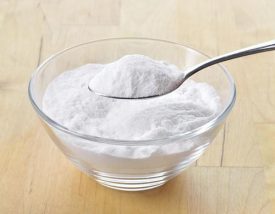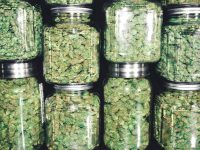This week, a judge in the U.K. ordered Northumbria University to cough up a $502,000 fine for an incident back in the spring of 2015.
A sports science experience conducted between two students went horribly wrong, when they both overdosed on caffeine after accidentally ingesting doses 100x stronger than the researchers intended.
Instead of what they thought was 0.3 grams of caffeine powder, Alex Rossetta and Luke Parkin consumed 30 grams – the equivalent of downing 300 cups of coffee.
The students have recovered since, with both losing over 20 pounds, and Rosetta experiencing short-term memory loss.
Thankfully, caffeine overdoses as severe as these two are rare – though possible.
Related: Is coffee good for your brain?
“It would be very difficult to get to a lethal dose of caffeine through consuming coffee,” explained Maggie Sweeney, PhD, a postdoctoral research fellow at the Johns Hopkins University School of Medicine.
“[Coffee] sort of has preventive measures because it is difficult to consume that volume of liquid.”

About 400mg of caffeine per day is safe for most adults, which is approximately four cups of coffee. But crossing that plateau may have you start experiencing “some of the negative effects of caffeine intoxication,” says Sweeney.
The symptoms of caffeine overdose can include:
- Restlessness, nervousness
- Excitement
- Flushed face
- Insomnia
- Cardiac arrhythmia (or irregular heartbeat)
- Muscle twitching, irritability
- Gastrointestinal problems, and
- A rambling flow of thought and speech
So just how much caffeine is too much?
As with most things, it depends on the person.
Related: Don’t Like Coffee? Try a Caffeine Bracelet Instead
“You would normally expect it at [doses] greater than 500 mg. But there are large individual differences in terms of sensitivity, due to differences in the speeds our bodies metabolize, or breakdown, caffeine,” explains Sweeney.
 Getting your caffeine fix from energy shots, or coffee with caffeine power (yes, people do this), it’s undoubtedly easier to ‘overdose’.
Getting your caffeine fix from energy shots, or coffee with caffeine power (yes, people do this), it’s undoubtedly easier to ‘overdose’.
“Where it becomes more challenging is when there is a higher concentration of caffeine per fluid ounce,” Sweeney says.
“In terms of serious adverse events with caffeine, of someone losing their life or becoming hospitalized, they’re still relatively rare… But in terms of emergency department incidents involving energy drinks, that’s something that has increased as energy drinks have become more popular.”
So to surmise, you can keep reaping the health benefits and kick from your morning coffee. Just steer clear of energy drinks, super coffee drinks, and especially caffeine powder – which the FDA is adamantly against.
Photo credit: White bear studio/Shutterstock












